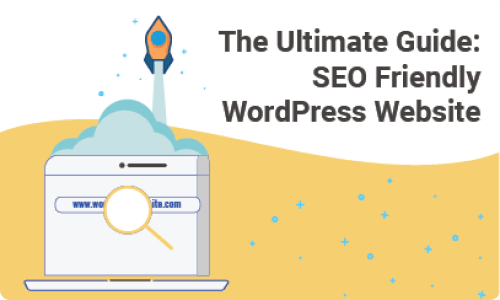Have you ever asked wondered whether your WordPress website is SEO-friendly? To answer this question, you first need to consider how search engines view your site. Fortunately, today’s blog will help you understand the basics of how a search engine views your site through the eyes of an SEO specialist. Hopefully, this will help you can determine if your chosen theme is appropriate for your site.
Over the past few years, Search Engine Watch has noticed a significant trend in search results across many popular sites. Certain keywords, when used relatively close together in the page URL (such as “keywords” and “thoughts”), tend to produce higher rankings than others. These keywords tend to appear repeatedly on the pages of related websites (although not necessarily the first page) and can be precisely targeted by SEO software. Of course, this will be directly influenced by your choice of SEO theme and whether it’s possible to group text together closely.
Naturally, we can approach SEO from numerous different angles. On the one hand, we can watch out for significant updates and changes in the search engine algorithms that could affect search engine rankings. On the other hand, we often rely on automated tools and comparison tools to monitor organic traffic patterns and pick out potential keywords for optimization campaigns. And, finally, we can take a proactive approach across other aspects of our website design – such as our choice of website theme – to ensure that the site is running at its most efficient overall for SEO purposes.
Let’s consider the eight main signs that help ensure your website remains relevant and meets its target audience’s needs.
Theme loading speed
Slow loading is one of the most vital factors to consider to help your website perform better. In fact, this simple metric can have a drastic impact; there’s a huge difference between a website that loads quickly and one that takes forever to load. Therefore, the first thing you should do when choosing a WordPress website theme is to check whether or not it has an in-built function and compression optimization. If it doesn’t, it might not be SEO-friendly, and you could lose potential customers.
Hosting is also important to protect your website and ensure traffic goes directly to your content. For example, if you’re using WordPress and your site isn’t ranking well in search engines, it could be because your hosting service isn’t competitive. Competitive means having a reliable, upgradeable host which keeps your site up and running quickly. As such, we recommend being wary of cheap hosts and services which may not keep your site secure or handle phishing attacks correctly.
WordPress theme and plugin loading speeds are important ranking factors for search engines, and your choice of WordPress theme may directly influence this. However, the more CSS and JS your website theme uses, the slower it will load. Naturally, the faster your website loads, the more quickly visitors will find what they’re looking for. However, if your theme relies on many plugins or has an involved establishment process for its features, it could slow down your website’s performance even further.
Non-responsive theme designs
Ideally, you want your website to load quickly and work well on all devices. In a world where time is money, you hence ought to focus on ensuring your website is free from problems. One of the easiest ways for sites to get lost in the web of the Internet is to have a non-responsive design. Non-responsive websites look bad and run slowly across all devices. They distract users from your content and can make SEO jobs much harder to complete.
WordPress is one of the most popular website platforms, and a considerable part of its success is derived from its flexibility and open-source nature. However, one of its biggest problems is SEO. Many sites out there use common templates and then populate their content after. However, at this point, the template has already implemented all of the necessary code on your website. As such, when someone searches for content related to your keyword, Google may show them a different site, rather than your own, on their results page. Luckily, plugins such as SEO Builder help you populate your pages with a more generic version of HTML and add all sorts of functionality such as widgets and uploaded images. Meanwhile, if you want to get more traffic to your blog but don’t want to spend too much time writing content, upgrading to a premium WordPress theme might be the way to go.
URL structure
In the early days of blogging, many people built their websites without thinking about the proper structure for their content. This often leads to the rapid rise of poor-quality website themes. Today, however, we know that having good content that’s properly organized can make a huge difference regarding how many visitors see your blog. In addition, due to the increasing popularity of WordPress and e-commerce websites, there’s never been a better time to start optimizing your site’s URL structure for better website search results.
XML sitemap
Is your WordPress theme running old software, or does it have missing features? XML sitemap files tell search engines where to find your content. If your WordPress is not up to date and you’ve not implemented a suitable theme with an XML sitemap, your website could be missing vital information that could lead to higher traffic from search engines. It’s easy to make these kinds of mistakes when you’re new to operating a website. Still, as you grow your expertise, it’s important to pay attention to the assets you use to ensure they work well for both users and potential clients.
Title tags
Unsuitable use of title tags is one of the most frequent barriers to ranking your web pages. Indeed, title tags are critical and must always play a prominent role in your WordPress theme. They tell search engines what type of content to show when someone searches for a term. As such, using unsuitable titles may put your website at risk of not ranking well for certain search terms, which will cost you SERP points.
Meta description
In WordPress, the meta description describes pages on your website that might interest search engines. The meta description is also used by visitors when deciding which page to visit and what content to read. However, if your WordPress website has several pages with related content, using a meta description may not offer quite as much benefit to viewers.
Google rank
It’s easy to build a website that’s simple to search for. However, it’s a lot harder to get Google to rank it. What does this have to do with choosing a theme for your WordPress site? Everything! If you’re starting a blog from scratch or looking to optimize an existing one to rank higher in organic search results, you must understand how many keywords you need to rank well, and you should choose a theme that enables this integration.
Duplicate content
Duplicate content is a problem that affects many WordPress sites. From attracting new web visitors and backlinks from search engines to keeping outdated pages online for educational or altruistic purposes, duplicate content can be highly damaging. Moreover, issues with duplicate content can crop up at various stages of the production cycle for your website. With WordPress SEO, you can minimize these issues by ensuring you manage your local copies of plugins and themes consistently.
Finally,
If you own or manage a WordPress website, you likely already know how vital it is to support your local SEO efforts. Of course, it’s no secret that Google considers the first page of Google to be “SEO-friendly.” As such, if your website has implemented a theme that covers all of the points we’ve outlined today, it will likely rank higher in the Google search results overall.
Contact us at info@engagebranding.com for more information and queries related to this blog.



